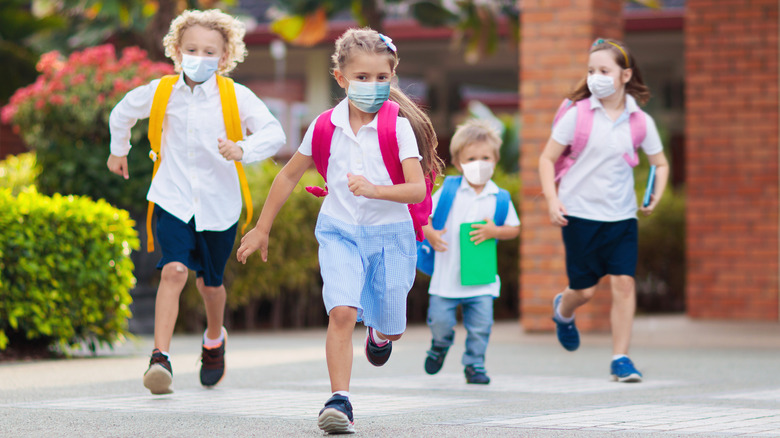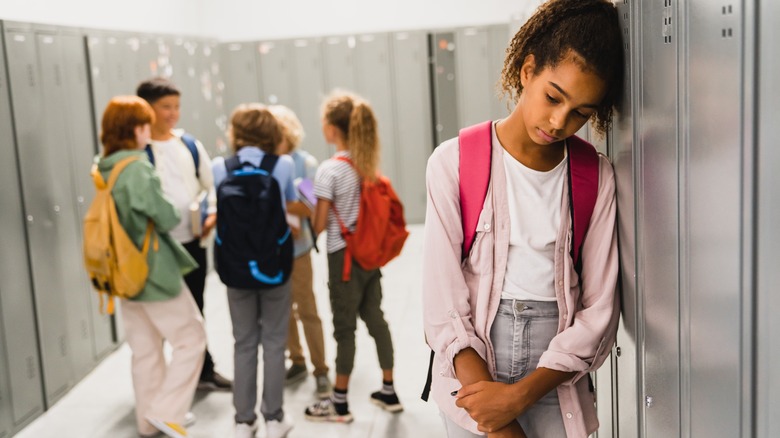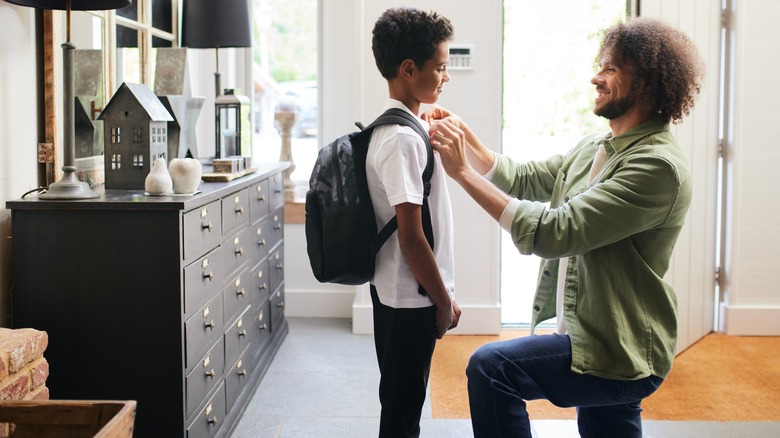Dr. Doug Newton Shares How To Handle COVID-Related Anxiety As The School Year Begins - Exclusive
Back-to-school is a busy and bustling time of year for many families — and unfortunately, the complexities of the COVID-19 pandemic can add extra confusion and anxiety during this time. With the guidelines from the U.S. Centers for Disease Control and Prevention (CDC) seemingly always shifting, and the threat of a COVID infection still present, many are adding "stress relief" to their back-to-school list. According to a recent scientific study by the CDC, one-third of high schooler parents reported that their child has symptoms of mental health issues, including 19% with anxiety and 13% with depression, due to the pandemic. "Now more than ever, we need to be there for our children," says Dr. Doug Newton of SonderMind.
In an exclusive interview with Health Digest, Dr. Doug Newton shared tips and tricks for students, teachers, and parents to handle COVID-related anxiety about this upcoming school year. Dr. Newton is the chief medical officer at SonderMind, a mental health service that helps people connect with a licensed therapist for online video or in-person therapy sessions. He holds a Doctor of Medicine degree from the University of Wisconsin and a Master of Public Health degree from Yale University.
Normalize COVID-related anxiety
First of all, Dr. Newton recommends helping your kids recognize their emotions. Identifying emotions and feelings can be hard at any age, especially for children. Dr. Newton advises adults to talk with kids and help them figure out what exactly it is they are feeling. Then, normalize those emotions: "It is important for all of us — parents, teachers, and children — to understand and hear from loved ones and other trusted individuals that we are not alone and that these feelings are completely normal this time of year," says Dr. Newton. Many others may be having the same concerns and emotions as you — observe others around you and notice if they are struggling. According to Dr. Newton, "Compassion is more contagious than COVID."
In addition, anxiety and fear often come from feeling as though you have no control over the situation. After you assess what is causing the stress, think about what you can have control over. For example, if a child is concerned about making friends, you might role-play how to ask other kids to hang out or things to say when they first meet someone new. It is also important to not fixate on things that are not in your control.
Anxiety-reducing tips
So how can you mentally prepare for this upcoming school year? Dr. Newton recommends setting a regular daily schedule and sticking to it. For example, everyone in the family can wake up around the same time, share breakfast, and have the same bedtime every night. A consistent schedule can help reduce anxiety. In addition, make an effort to stay connected with loved ones. "Despite the increase of social media in our daily lives that can connect us to others around the world, people of all ages are feeling more alone than ever, which increases feelings of anxiety and depression," says Dr. Newton. The busy schedules during the back-to-school season can create feelings of disconnection and isolation.
It's also important that parents take time to take care of themselves so that they can be there for their kids. Make time in your schedule for relaxation and rejuvenation, as well as exercise. "Even 30 minutes a day of low-impact exercise has been shown to significantly reduce stress," says Dr. Newton. Also, don't be afraid to seek the help of a therapist. A common misconception about therapy is that it's only for those struggling with severe mental illness — everyone can benefit from therapy.
SonderMind helps people connect with a licensed therapist for online video or in-person therapy sessions and is making it easier for people to access, receive, and participate in mental health care.



